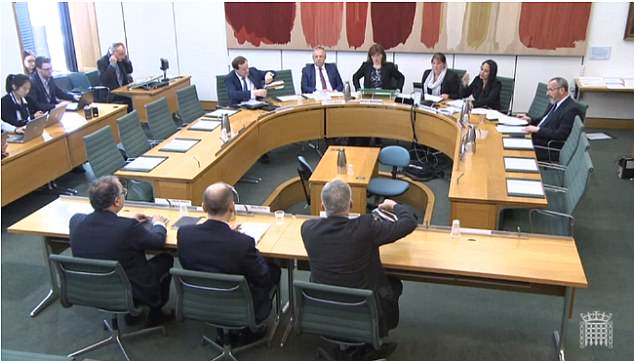Imagine opening the banking app on your phone and looking at the balance. It seems surprisingly high. You look more closely, and don’t recognise the recent transactions. Then you see the name: it is not your account. When you’re sorting out whether you feel the thrill of eavesdropping or the fear that you’ll get in trouble for somehow hacking into a stranger’s account, you might shortly feel the dawning horror that someone else could be looking at your own account right now.
TSB are sorting out an IT disaster that began at the end of April, which locked customers out of their accounts, affecting mortgage and credit card payments.
What happened? TSB used to be a part of Lloyds TSB (now Lloyds Banking Group), and is now owned by the Spanish bank, Sabadell. Customers’ records had been held on the old Lloyds platform, and were migrated to the new Sabadell platform on 20 April of this year.
TSB CEO Paul Pester and COO Miquel Monte Güell were called before Parliament’s Treasury Committee. During the hearing, Pester told the committee, headed by Nicky Morgan MP, that ‘the percentage of people logging in successfully is 95%… Of course, that means 5% are not logging in successfully but that is often the case for any bank.’ These were the sort of remarks that prompted Nicky Morgan to call Pester ‘a staggering example of a chief executive who fails to recognise the scale of the problem that is being faced.’

The TSB CEO also refused to tell the committee when the problem would be rectified, saying that giving a date could be ‘misleading to customers’.
Paul Pester has not handled the situation well. We recommend keeping clear lines of communication open, making the focus sorting the problem and seeing things from the customer’s point of view. His big quote from the fiasco – ‘We are on our knees, we will get up, and come back fighting’ – does very little of this. It’s vague, self-pitying, gives no information, and we’re not sure whether he’s fighting for the customer or to save his own skin (or indeed the £2million bonus Pester would’ve received if the migration had gone to plan. He will not now be getting said bonus).
His other communications have included criticising social media – which is usually a mistake, as it’s where customers go to get information and to vent their frustrations. If you criticise online comments, it looks like you’re not taking customers’ concerns (or anger) seriously. He also said ‘I’ve just resurfaced after 48 hours with my teams who have been working as hard and fast as they can to get our services back up and running.’ Again, unless he’s an IT expert, this statement does run the risk of sounding somewhat misleading and smacks of ‘poor me’ – never a good look when you’ve got customers missing their rent. It reminded us of the BA boss, Alex Cruz who donned a high-viz jacket to give an interview while he was in an office. Like royalty in a hard hat, you wonder if any real physical labour has been carried out, and conclude that it almost certainly hasn’t. The computer problems and the handling of the fall out add up to what the Bank of England has dubbed ‘self inflicted wounds’.
The story has run and run as the bank has been slow in putting things right and further details emerging about just how unprepared the bank was: a whistleblower who worked on the online banking migration team is reported to have claimed that as the changeover date approached, staff felt under pressure to ‘massage’ a system of alerts and downgrade issues from ‘urgent’ to ‘resolved’ – despite the problems not being fixed.
So it seems the fiasco was inevitable with people working in silos, afraid of communicating the truth, trying to do the IT upgrade on the cheap and the unwary customer now finding that they can not access their money. What will those customers do?
There’s an oft-repeated factoid that people change their spouse more often than they change their bank account. That may have been true once, but we live in a very different world from that which we knew a few years ago; technology has transformed the financial services, and while banks have long referred to us as ‘customers’ – we are only recently behaving like customers and voting with our feet. On the TSB website, Paul Pester had written: ‘At TSB, our focus remains unchanged: we will continue to do our bit to bring more competition to UK banking and ultimately make banking better for all consumers.’ A statement from happier times.
TSB have said they are going to reimburse anyone who has lost money due to the error, but charges for missed payments are only one part of the picture; a damaged credit score can not be fixed by throwing money at it. When customers are refused a mortgage or loan because of the mistake, the second wave of this calamity will unfold. Reputation is one of those things that once lost, is hard to get back. TSB, the Trustee Savings Bank, has held onto its name through mergers, takeovers and buy outs. The latest owner of TSB, Sabadell, decided not to change the name of the business to benefit from customer recognition of a trusted brand. Now they might not have the choice.
This article appears on Nadine Dereza’s website as well as PS Programmes.
Whether you’re being interviewed on TV and radio, speaking at a conference, pitching for new business, delivering a boardroom presentation, appearing before a regulator or public body – Nadine Dereza and the team at PS Programmes can help you communicate more effectively.

